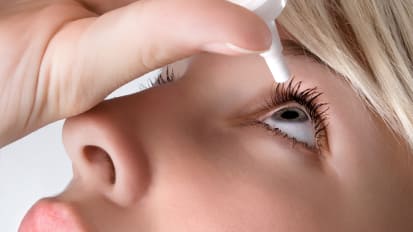Peter McDonnell, MD
Professor of Ophthalmology

Peter J. McDonnell, M.D. is the director and William Holland Wilmer Professor of Ophthalmology at the Wilmer Eye Institute at the Johns Hopkins University School of Medicine. A board-certified ophthalmologist and specialist in corneal disease and surgery, Dr. McDonnell is an international leader in corneal transplantation, laser refractive surgery and the treatment of dry eye.
Dr. McDonnell received his bachelor’s degree in chemistry from Dartmouth College. A 1982 graduate of the Johns Hopkins University School of Medicine, Dr. McDonnell completed a residency in ophthalmology at the Wilmer Institute, followed by a fellowship in Cornea and External Diseases at the Doheny Eye Institute of the University of Southern California. He returned to Johns Hopkins to be Assistant Chief of Service at the Wilmer Institute, before joining the full-time faculty at the University of Southern California, where he advanced to the rank of professor in 1994.
In 1999, he was named the Irving H. Leopold Professor and Chair of the Department of Ophthalmology at the University of California-Irvine. In 2003, he returned to Johns Hopkins University where he leads the Wilmer Eye Institute as the sixth William Holland Wilmer Professor and Director. The Wilmer Institute is the largest ophthalmology department in the country, with over 130 full-time faculty, and it receives the most research funding. It includes the only designated eye trauma center in the State of Maryland, and last year provided eye care for patients from throughout Maryland, from all 50 states and from 73 foreign countries.
Dr. McDonnell’s research interests include dry eye disease, ocular infection and gene therapy to control corneal wound healing and inflammation. He is the recipient of research grants from the National Eye Institute, Research to Prevent Blindness, and other funding agencies. He has published over 250 scientific articles and holds four patents. The American Academy of Ophthalmology honored him with the Honor Award in 1991 and the Senior Achievement Award in 2001. In 2003, he received the Alcon Research Institute Award. A member of many professional ophthalmology and medical societies, Dr. McDonnell has served on the editorial boards of six ophthalmology journals and is currently Medical Editor of Ophthalmology Times.
In 2013, Dr. McDonnell was elected president of the boards of directors of NAEVR/AEVR (the National Alliance for Eye and Vision Research and the Alliance for Eye and Vision Research). AEVR is a nonprofit educational foundation, the primary purpose of which is to educate Congress and the public about the value of eye and vision research. NAEVR is a nonprofit affiliate of AEVR and comprises a coalition of 55 professional, consumer and industry organizations involved in eye and vision research.


